The Story Of Morecambe & Wise extract
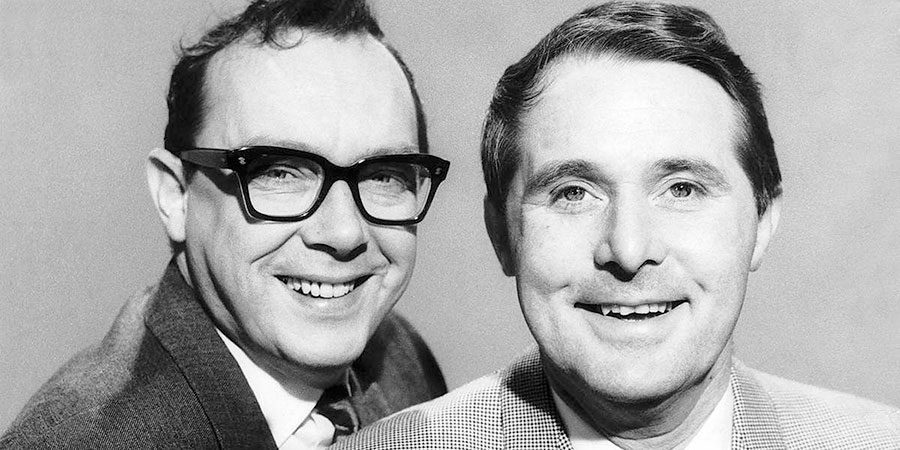
Here's the introductory chapter of Sunshine And Laughter: The Story Of Morecambe & Wise, the new book by Louis Barfe.
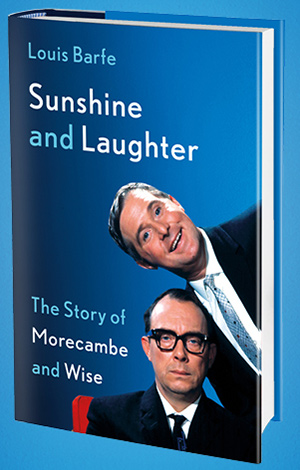
The peak of British television light entertainment began at 8.55 p.m. on Sunday 25 December 1977, and lasted for sixty-five minutes, sandwiched between Mike Yarwood's Christmas show and Angela Rippon reading the news.
Ratings measurement being even more of an inexact science then than now, viewer figures vary. The BBC's own figures place the audience at 28 million, whereas the JICTAR [Joint Industry Committee for Television Audience Research] figures commissioned by ITV say 21.3 million people were viewing, 100,000 fewer than watched Yarwood. However, even if Yarwood won the day, who can remember a single sketch from that top-rating show? This is no reflection on Yarwood's considerable talent, it's just that impressions of Jim Callaghan have not tended to have a long shelf life.
However, the show that came after is packed with moments that still provoke laughter and fond memories. The main event was the Morecambe and Wise Christmas Show, an annual occurrence on BBC1 since 1969, and, from 1971 onwards, the jewel of the festive schedules. That was the year when Shirley Bassey donned a pair of brown boots and Andrew Preview failed to conduct Grieg's Piano Concerto, turning the show from an extended edition of a big hit into the one that everybody wanted to be on.
As it transpired, this was the last show Eric and Ernie were to make for the BBC, but they left on a high. Although both men were only just in their fifties, this show was the culmination of forty years in the business. During those four decades, they had amassed a lot of experience, some of it in the hardest possible way. Most importantly, though, those years had made them indivisible. Their brains were in perfect synchronisation. They loved each other like brothers, and the audience repaid that love.
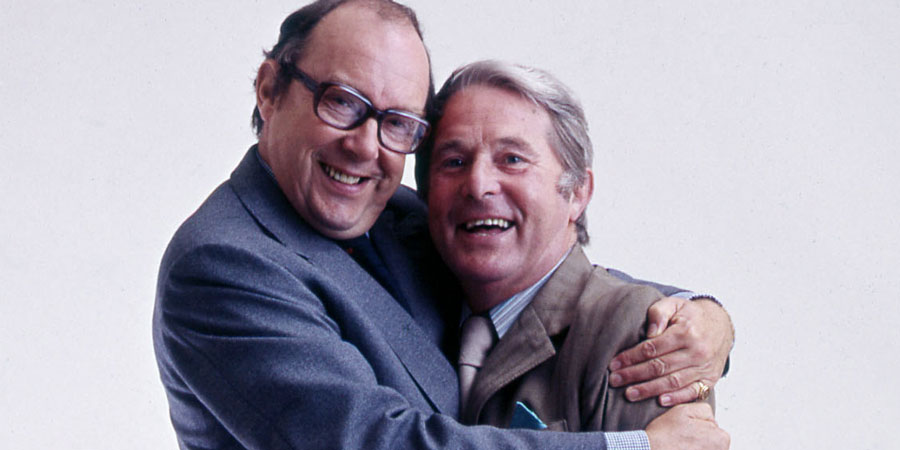
However, their career wasn't a straightforward, linear, rags-to-riches story. Both became famous at an early age, as protégés of the bandleader Jack Hylton, before fading into obscurity. That could have been the highest their star ever ascended, but they emerged again, bigger, better, brighter, reaching a level unlikely ever to be equalled, and which, thirty-eight years after their last television show, displays no sign of abating.
Being a child star is almost always the recipe for a disastrous and sometimes tragic adulthood. Those who shine brightest earliest find it hard to keep the flame from guttering. Often the public is unwilling to accept the adult version, leading to bitterness and rancour. Sometimes the experience of childhood stardom was so abusive and damaging that adult life becomes impossible. Lena Zavaroni and Judy Garland are the obvious extreme examples of this.
Eric Morecambe and Ernie Wise were two of the greatest exceptions. Young Ernest Wiseman's London stage debut at the age of thirteen was front-page news. He was billed as the next Jack Buchanan [(1891-1957) - a celebrated song and dance man who owned theatres.]. When another talented young lad joined Jack Hylton's company, he too made news, with his outsize lollipop and his Lancashire 'gowk' act. It would have been very easy for both boys to get too big for their boots, but Eric's mother, Sadie, was on hand to make sure that neither did. The long years of struggle to make their names as adults sealed the matter. However, even when they made it, arriving at rehearsals in their Rolls-Royces, they remained working-class entertainers. They might have had luxury houses in well-heeled areas, but they were of the people. They were two of us.
Eric Morecambe died in 1984, and Ernie Wise rejoined his partner in 1999. Just what is it that makes Eric and Ernie endure all these years later? Between 1979 and 1988, Thomas Derbyshire and Robert Harper, better known as Tommy Cannon and Bobby Ball, were London Weekend Television's big double act. Their catchphrases - not least 'Rock on, Tommy' - became currency in playgrounds and workplaces the nation over. They remained active as a partnership until Ball's untimely death in 2020 during the Covid-19 pandemic, Ball having also carved out a niche as a comic actor in shows like Not Going Out. However, their shows languish unrepeated.
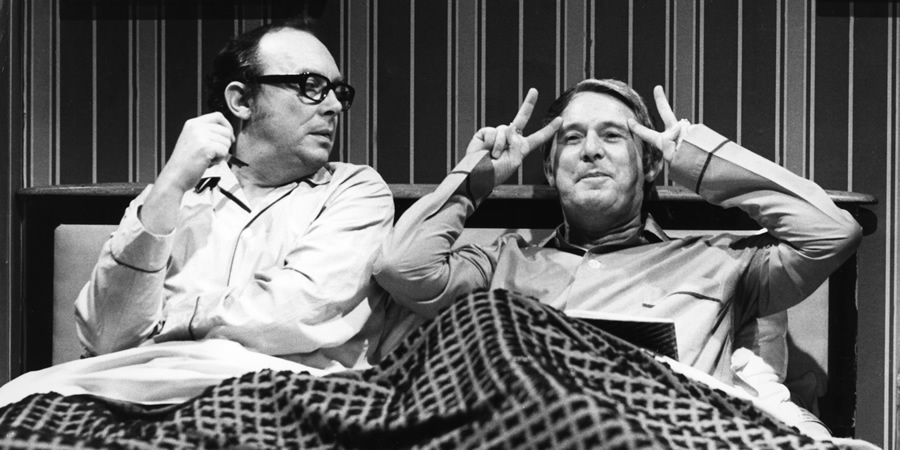
Other double acts have been and gone. Mike Hope and Albie Keen, Lennie Bennett and Jerry Stevens, Gareth Hale and Norman Pace, Mike and Bernie Winters, Bernie Winters and Schnorbitz (Schnorbitz was the St Bernard dog, or rather, fleet of St Bernard dogs, who became Bernie Winters' comedy partner, replacing his brother Mike when the act split acrimoniously.) All were good turns, yet none come close to the affection in which Morecambe and Wise were, and are, held.
For whatever reason, the tall handsome one with glasses and the one with the short fat hairy legs continue to work their charm on audiences. Maybe it's their authenticity? Once refined to its essence in its later years, theirs was no longer really an act. They were playing themselves. They were two very old, close friends having fun and inviting millions to join in with them. Eric and Ernie were inclusive. They were the nation's best friends.
If Eric Morecambe's first heart attack, in 1968, had been fatal, it's unlikely that Morecambe and Wise would be remembered so fondly or intensely. The best of the work they did at ATV with writers Dick Hills and Sid Green, was ratings-topping comedy in its day, but it lacks the depth and warmth of their work with Eddie Braben. The Liverpudlian fruiterer-turned-writer expanded the double act into a triumvirate with a non-performing partner to create the Eric and Ernie we continue to love and celebrate. Braben wrote surrealism with a basis of essential truth and integrity. When they met in Bill Cotton Jr's office at Television Centre, something happened, something magical.
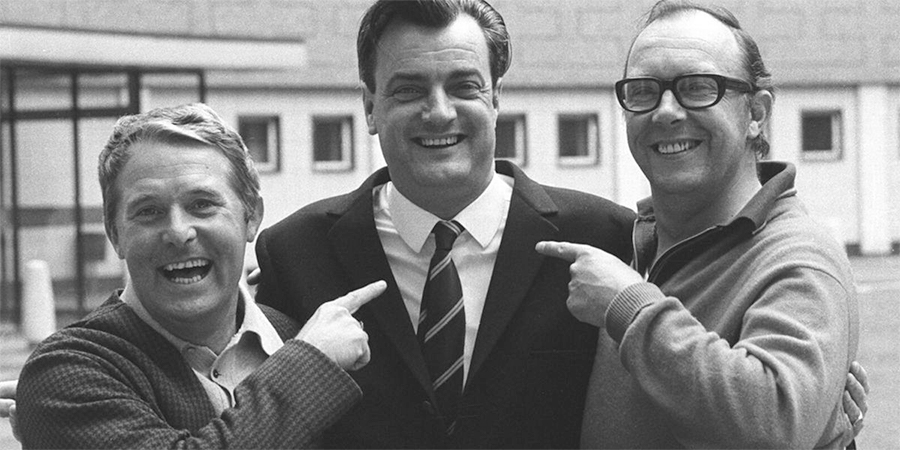
Hills and Green had mined for comic purposes the contrast between Lancastrian warmth and Yorkshire sharpness. Braben mixed up both with his own Liverpool wit, and made the boys non-specifically Northern. He created a mythical world where Eric and Ernie had grown up together, as indeed they almost had. He called it Tarryasson Street. He made Wise much gentler and warmer, closer to the man he actually was, but with the genius addition of comic meanness, when he wasn't mean at all. He made Morecambe much stronger and sharper, not always the fall guy. He saw the warmth that existed between these two men, a love closer than many brothers, and made it into comic gold.
That magic, that chemical reaction, created a phenomenon that transcended and continues to transcend conventional popularity. The Beatles had, and have, it. Eric and Ernie had, and have it. Their work can be repeated endlessly because so little of it is even slightly problematic. There is something comforting and safe about Morecambe and Wise, but this isn't cosy nostalgia. They always were comforting and safe. They were and are a constant in an increasingly uncertain world.
Sunshine And Laughter: The Story Of Morecambe & Wise is out now. Waterstones
Help us publish more great content by becoming a BCG Supporter. You'll be backing our mission to champion, celebrate and promote British comedy in all its forms: past, present and future.
We understand times are tough, but if you believe in the power of laughter we'd be honoured to have you join us. Advertising doesn't cover our costs, so every single donation matters and is put to good use. Thank you.
Love comedy? Find out more
